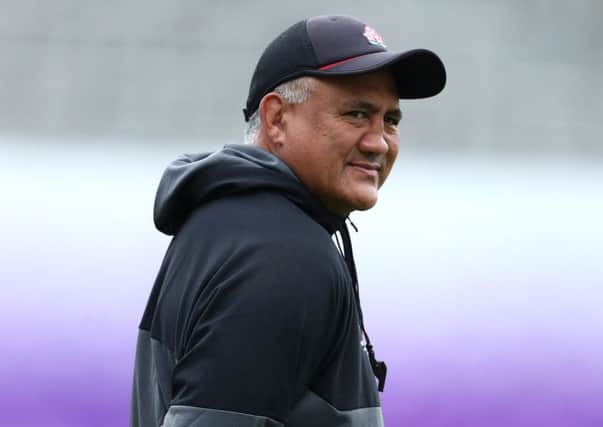Japan are on a mission to entertain when they face South Africa


After each match, the entire squad has lined up to take a ceremonial bow, in the respectful, traditional way, to thank their supporters – a group that has been swelling exponentially with every win in the group stage of the Rugby World Cup.
Japan will experience another first in the tournament – the first Rugby World Cup in Asia – when the so-called Brave Blossoms take on South Africa in the quarter-finals today.
Advertisement
Hide AdAdvertisement
Hide AdJapan won all four of their group games to top Pool A, including an upset win over an Ireland team that was ranked No 1 before the tournament. That’s the pre-tournament objective seized. Yet Leitch is far from satisfied.
The Japanese may not ever have played a knockout game, but they hadn’t won a group game for 20 years at the Rugby World Cup before winning three in 2015 – including the shocking 34-32 win over South Africa that was dubbed the Miracle of Brighton.
Neither Japan nor South Africa have really focused on that result this week. The Japanese because head coach Jamie Joseph doesn’t think this team will be defined by that tournament. And the Springboks because… well, it’s better forgotten by the two-time World Cup champions.
South Africa beat Japan 41-7 in a warm-up game here last month, but neither squad is putting too much emphasis on that, either.
“Both teams had different things in mind. We definitely played a style of game that wasn’t around playing for South Africa, it was around playing for the World Cup,” Japan’s attack coach Tony Brown said. “Tomorrow is a completely different game, a one-off quarter-final, winner goes on and loser bows out so it’s exciting.”
Joseph and Brown have played for New Zealand. Joseph played against Japan in 1995 and for Japan at the ’99 World Cup. Their collection of home-grown talent and naturalised players from Australia, New Zealand and South Africa have really embraced the Japanese culture and, with that, have become the nation’s team.
“It’s amazing the amount of people that have got on the Japan bandwagon,” Brown said. “The amount of people watching every game and supporting us in Japan has been amazing. It’s the same in New Zealand. Japan is New Zealand’s second (favourite) team now, so we’re proud we can represent them playing good footy.”
Entertaining rugby has been Japan’s signature in this tournament, with the ball regularly spread wide to the speedy wings. That could change today, when South Africa aim to outmuscle them and slow them down. That strategy was obvious when Springboks coach Rassie Erasmus announced a squad – 24 hours before deadline – featuring six forwards on the eight-man reserves bench.
Advertisement
Hide AdAdvertisement
Hide Ad“I don’t think it’s a double bluff. There’s only one thing they’re going to do – physically intimidate us,” Brown said. “A messy game is what they’re good at. Our challenge is to play our game and try to entice them into playing some Japanese rugby.”
The Japanese will have almost unanimous crowd support. As well as the almost 50,000 at Tokyo Stadium, the domestic broadcast audience is expected to exceed 50 million again and bars and official fan zones around the country will be packed with supporters wearing red-and-white hooped jerseys and headscarves with hissho, or must win, printed on the front.
Scrum-half Yutaka Nagare said: “We really feel the attention and at the ground the fans push us on, too.
“I think we have made a good impact, not just in the rugby world, but in the entire sporting world.
“We’ll carry the emotions of our fans but it’s something we should feel after executing our game.”